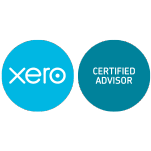
The Taxation Review Authority (TRA) has recently heard a case involving a Trust that had been buying bare land, building houses, and then selling them but not treating the proceeds as taxable.
The Trust itself comprised three trustees, Mr. and Mrs. B, and their solicitor who acted as an independent trustee. Over 12 years, the Trust bought and sold 11 properties, of which 10 were purchased as bare sections, with the Trust contracting a builder to construct dwellings to the gib-stopping stage on nine of them. Mr & Mrs. B would move into the homes with their family and complete the finishing touches.
Following an audit into Mr. and Mrs. B and the Trust’s affairs, the IRD took the view that the Trust had been carrying on a business of erecting buildings, and therefore income tax and GST applied to seven of the 11 sections that had been sold.
In response to the IRD’s position, Mr. and Mrs0 B put forward several personal reasons as to why they moved between houses. Those reasons were cited as:
-
problems with neighbors, such as having a creepy guy peering into their bedroom from a house next door or, the house next door becoming an IHC house,
-
concern that one house was a leaky home and another had carpet that made the taxpayer’s asthma worse,
-
one house backed onto a railway line, while another was on a busy road and there was a concern for the kids crossing the road. The lights from a T intersection also disturbed them at night,
-
wanting to move closer to an ill mother or the daughter’s school, and
-
one of the taxpayer’s work hours was to be cut so they sold to ease their financial burden.
The TRA’s decision
The TRA sided with the IRD and found that at the time of purchase the Trust intended to sell each property. The Trust’s activities were coherent and organized. The repeated process of buying land, building, and selling dwellings on completion created a clear pattern that demonstrated the existence of a business. The Trust was assessed for income tax of $65,422.
It was also found that the Trust’s building activity met the statutory test of a “taxable activity” for GST purposes. The Trust was liable to account for $30,164 of GST output tax on the sale of the properties, and a penalty for ‘gross carelessness’ was confirmed by the TRA at $19,117.
Joint liability
Generally, all trustees are bound by the decision and actions of each other when engaged in the affairs of a trust. The independent trustee was held jointly and severally liable even though the person was not consulted before entering into transactions.
Conclusion
The IRD is directing additional resources into the property sector. Taxpayers demonstrating a pattern of buying and selling property can expect the IRD to come knocking.


